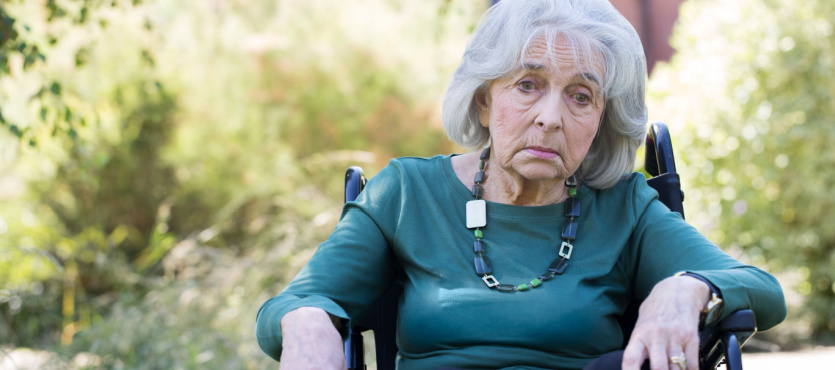We have an aging population. People all over the world are living longer than ever. There are currently 727 million people over the age of 65. By 2050, this number is expected to double.
While this may seem like a good thing, there are some downsides. When so many people are at retirement age, there are fewer young people to work. This means there is a shortage of qualified workers. Plus, when people get older, they tend to have more health issues. This means there will need to be more nurses and medical workers to deal with the aging population.
Nursing homes have a combination of these — older patients and a shortage of workers. This leads to abuse and neglect. As you can imagine, nursing home neglect is rising due to an aging population. It is becoming more and more common, but family members do not always see the signs.
In 2020, there were more than 15,000 cases in the United States. While abuse is fairly common, neglect is harder to identify. It can incorporate abuse and focuses on the abandonment of the patient. In many cases, cruelty and a lack of professionalism are not factors. Instead, patients are neglected accidentally due to a lack of money.
The COVID pandemic, funding cuts, and staff shortages have left nursing homes without adequate staffing. Patients are also experiencing changes in health care coverage, which means they may have to switch to less expensive nursing home facilities. Like with everything else, with nursing homes, you get what you pay for. This means poor training is highly likely.
Fortunately, there are laws and services in place designed to protect the elderly and ensure they get the best care possible. Two main acts include:
- The Elder Care Justice Act. This act is designed to help with legal support for elders and their families so they can seek justice in abuse cases.
- The Older Americans Act Programs. This is a combination of programs and laws that help with nutrition, transportation, medical issues, legal issues, and other resources for the elderly.
What is Neglect?
Neglect refers to the failure to provide adequate care. While not as violent as abuse, it can be just as dangerous to a person’s health.
The COVID pandemic led to increased cases of neglect and isolation in nursing homes. Patients suffered dehydration, malnutrition, weight loss, bed sores, poor hygiene, health declines, and inappropriate use of medications. Nursing home shortages as well as a lack of visitors, likely contributed to these issues. In fact, the lack of monitoring led to many deaths due to bedsores and infections.
Even though the pandemic is over, neglect is still an issue in nursing homes. Staff members may have 12-15 patients in their care, even though they should legally have half that number. This means staff members are not spending adequate time with patients. Patients are not getting the necessary care, which can lead to malnutrition and hygiene issues.
Negligent hiring is also an issue that leads to neglect. Nursing homes may be quick to hire staff and neglect to perform background checks. They may hire people with little training and fail to train them properly, which can be dangerous to patients. Many staff members are addicted to alcohol or drugs or are former criminals.
Neglect may include:
- Failing to administer medications
- Not providing food or water
- Not changing patients’ clothes
- Not bathing patients
- Not changing soiled bedding
- Not moving immobile patients
- Not reporting illnesses and injuries
- Isolation
- Not providing assistive devices to those with mobility issues
Signs of neglect include:
- Bed sores
- Broken bones
- Bruises
- Malnutrition
- Dehydration
- Untreated medical issues
- Unexplained injuries
- Lack of hygiene
- Changes in personality
Who is Responsible for Nursing Home Neglect?
Two main parties may be liable for your loved one’s neglect — the staff member and the nursing home itself. Staff members need to be fully trained and attentive to each patient. Taking shortcuts can lead to injuries, illnesses, and death.
The nursing home facility itself also has a duty to its patients. It must provide them with the best care possible. This means hiring competent staff, performing background checks, keeping facilities clean, and dealing with any issues promptly. When they engage in poor hiring practices and do not perform proper upkeep on the facility, it can constitute neglect.
There are consequences involved. Nursing homes have contracts with their patients, so any poor care becomes a legal issue. Failure to provide proper care can result in civil or criminal penalties. Staff members who neglect patients may lose their licenses, making it so they cannot care for others. In addition, nursing homes are subject to steep fines. They can also be sued by the family members of neglected patients.
Contact Us Today
Nursing homes are supposed to care for patients, but sometimes they do not. Neglect can happen in many different ways, and it can lead to significant health issues and even death.
The team at Brill & Rinaldi, The Law Firm can help you if your loved one has been injured in a nursing home. We will assess your case and get you full and fair compensation. For a free consultation, fill out the online form or call (954) 876-4344. We have offices in Weston, Coral Gables, and Daytona Beach.

